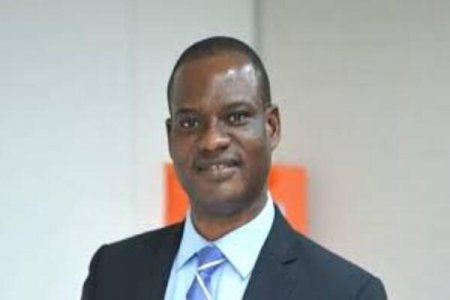
In an exclusive interview with Channels Television, Chairman of the Presidential Tax and Fiscal Policy Reform, Taiwo Oyedele, has revealed a groundbreaking proposal to train area boys as tax officers and pay them decent salaries, aiming to transform tax collection and alleviate the burden on citizens. Oyedele also sheds light on the ongoing efforts to reduce multiple taxes, which he describes as a nuisance at the state and local government levels.
In the interview, Oyedele acknowledges the impatience among Nigerians awaiting the results of the Tax Reform Committee's recommendations. He emphasizes that fiscal policy matters take time, but expresses his belief that progress could have been faster. The Committee submitted its first report in October, featuring over 20 recommendations, with only a few fully implemented to date.
The key instrument for implementing the recommendations is the Emergency Economic Intervention Bill, designed to amend various laws and enact significant changes for price stability, relief to impacted individuals and small businesses, and improvements in foreign exchange. Oyedele acknowledges the delay in presenting the bills to lawmakers but assures that efforts are underway to prioritize and expedite the process.
Addressing the timeline, Oyedele admits difficulty in specifying exact dates but outlines the steps involved, including internal processes, presentation to the Federal Executive Council, and subsequent submission to the National Assembly. He expresses optimism about a swift resolution, aiming for passage by the end of the first quarter.
The interview delves into the execution of proposed reforms, with Oyedele highlighting ongoing engagement with governors to suspend "nuisance taxes" at the state and local government levels. He emphasizes the need to create a seamless and electronic tax payment system, ensuring that citizens pay less, while the government collects more.
Oyedele unveils a strategy to compensate local governments for suspending certain taxes, aiming to redirect funds to benefit the people. He addresses concerns about constitutional amendments, stating that the Committee plans to amend relevant laws and the constitution, recognizing the time involved but proposing interim measures such as MoUs with states to expedite the suspension of certain taxes.
In a surprising twist, Oyedele proposes the training of area boys and touts, providing them with uniforms and skills to become tax officers. This move, he believes, will not only contribute to effective tax collection but also offer a pathway for these individuals to transition to other employment opportunities.
The interview concludes with Oyedele expressing hope that the proposed reforms will have a rapid and positive impact on citizens, envisioning a streamlined tax system that benefits both the government and the people. The bold plan to train area boys as tax officers adds a unique dimension to the ongoing efforts to revolutionize taxation in Nigeria.




